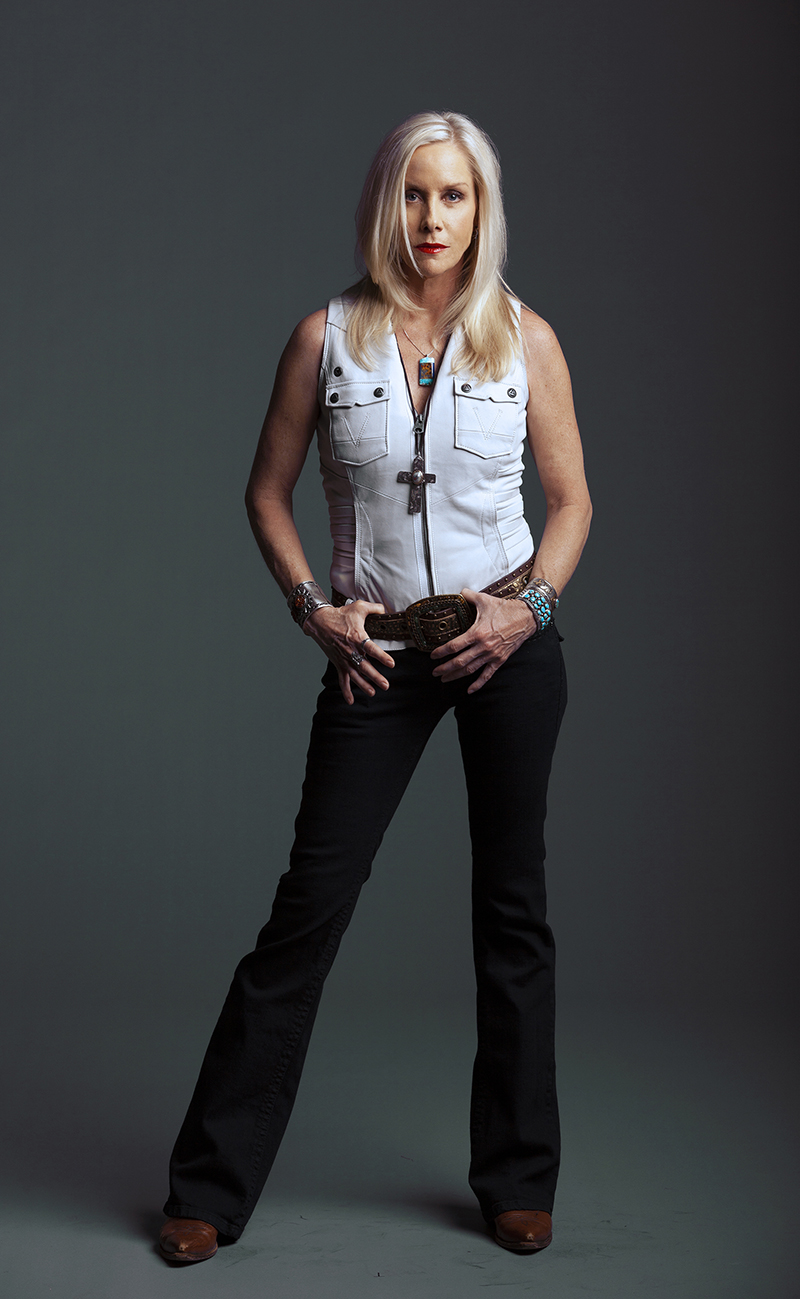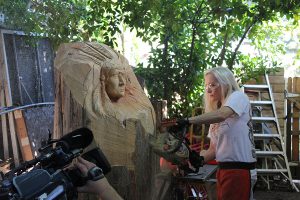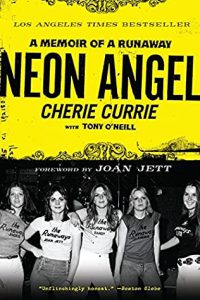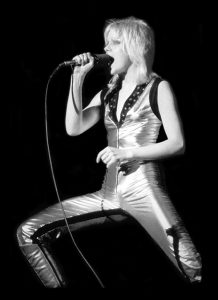INTERVIEW: Cherie Currie is fully charged for new album and audiobook

Cherie Currie, Courtesy: Robert Sebree.
Cherie Currie is a badass.
The former frontwoman for The Runaways burst onto the scene in the mid-1970s with an outsized attitude, an undersized corset, hellbent on injecting some estrogen into the rock and roll patriarchy. Even over the phone from her house in the San Fernando Valley during quarantine, Currie is a live wire, humming with intensity, energized to talk about her new album and the forthcoming audiobook of her memoir, Neon Angel: A Memoir of a Runaway.
Currie’s got reason to be excited. Her new solo album, Blvds of Splendor, was released in late April after the album languished on the shelf for almost a decade.
“It’s the best record that I’ve ever made and it’s the record I always wanted to make but never thought it was ever gonna happen,” Currie said. “And it’s a record that sat on a shelf for nine years. So for it to come out now, and for people to really appreciate it and love it is not anything I saw coming.”
The star-studded album includes contributions by Slash, Billy Corgan and Juliette Lewis. The drums and production were handled by Guns N’ Roses’ Matt Sorum.
“Throughout my career I’ve always tried to align myself with people that push me to be a better musician and making a fresh rock n’ roll record for Cherie Currie was just that, Sorum said by email. “Cherie is an icon and has the voice that made this record come to life.”
Currie heaped some of her strongest praise on Corgan, who collaborated on the album’s title song, but offered loads of advice her way during her creative endeavors. After Corgan finished his contributions to the album, Currie said she reached out to him for help with a song that she was working on with her son, Jake Hayes. Even though Corgan was on a retreat in Colorado, he responded with feedback via video with advice of how he would change it.
“I had heard it through the grapevine that [Corgan] had a bit of a reputation,” she said. “But the man that I met, and this was the real Billy, was truly one of the most giving, down-to-earth genius songwriters, performers, arrangers—I mean, he played all the instruments. … My experience with him was nothing short of loving and, like I say, gracious, giving, brilliant.”
The album’s extensive delay forced Currie to reexamine her life goals. Over the years, she had picked up chainsaw carving as an art.
“I had just decided that I was gonna just sell my house and go buy some land, and build a couple of cabins, and carve the rest of my life and be done with this business because it was just too much disappointment, you know?”
Currie compared the hobby to rock and roll.
“They’re both pretty kickass … and brutal, and dirty,” she said, laughing. I don’t know why I gravitate toward that kind of thing, but I do. It’s in my blood, just like this album, Blvds of Splendor, is my roots. It’s the kind of rock and roll that I love to perform. It brings me back to The Runaways days and doing that kick-ass rock and roll.”
Currie’s 1989 memoir, which recounts her tumultuous years with The Runaways, along with her personal battles with addiction, sexual abuse and a troubled childhood, served as the inspiration the 2010 biopic about the band. The film, starring Dakota Fanning as Currie and Kristen Stewart as bandmate Joan Jett, portrayed the band as a posse of take-no-prisoner women determined to have their way with the phallocentric world of hard rock and sparked a renewed interest in the band’s trailblazing history.
Currie is currently in the process of recording an audiobook of the memoir, slated for release later this year. Reliving some of her past trauma has been cathartic.
“It’s pretty miraculous to me, as well, because … when I finish each chapter I literally just sit back and go, ‘Phew, how the heck did that happen?’ or ‘My God, I’m just so glad to be through that chapter,'” she said. “And I didn’t even realize it ’til I started to be verbal about it, and talk about it for this book. It’s just incredible that we all survived.”
Having lived through the sleazy and sexist ’70s in the music industry, Currie has an interesting take on the recent #MeToo movement.
“I was a very strong supporter of #MeToo. I still am,” she said. “When the #MeToo movement first started I thought they were just so on-course, but I think it’s gotten blown out of proportion in a lot of ways. And that’s when they lost me a little bit, only because I love men and I love what they contribute. … I grew up in the ’70s when [sexism] was completely normal. It was just a different time. And I don’t want to say I was a victim because … everything else that really happened, or the majority of it, was our choice. So I hate it when men get the raw deal all the time. I don’t think that’s right, either.”
Currie’s strength and resilience are clearly key ingredients in her identity; traits that were inscribed onto her in the crucible of rock and roll. Perhaps most striking is Currie’s insistence on the power of personal responsibility, and that lesson seems to have been learned over the course of her entire life.
“I thank people a lot of helping me in my recovery, but I also have to take responsibility to allowing myself to get that deep into my addictions,” she said. “I keep a picture of myself on the cover of the L.A. Times calendar section from when I was drinking very heavily, and I keep that cover picture because I want to be able to look at it and say, ‘Look what you did to yourself.’ … It’s really important that we not only take responsibility for the things we did wrong, but the things we did right. And being able to realize we’re all just human beings and life is gonna deal a strong hand here and there. How we deal with that hand is important in the end.”
Follow writer David Gill at Twitter.com/songotaku and Instagram/songotaku.



